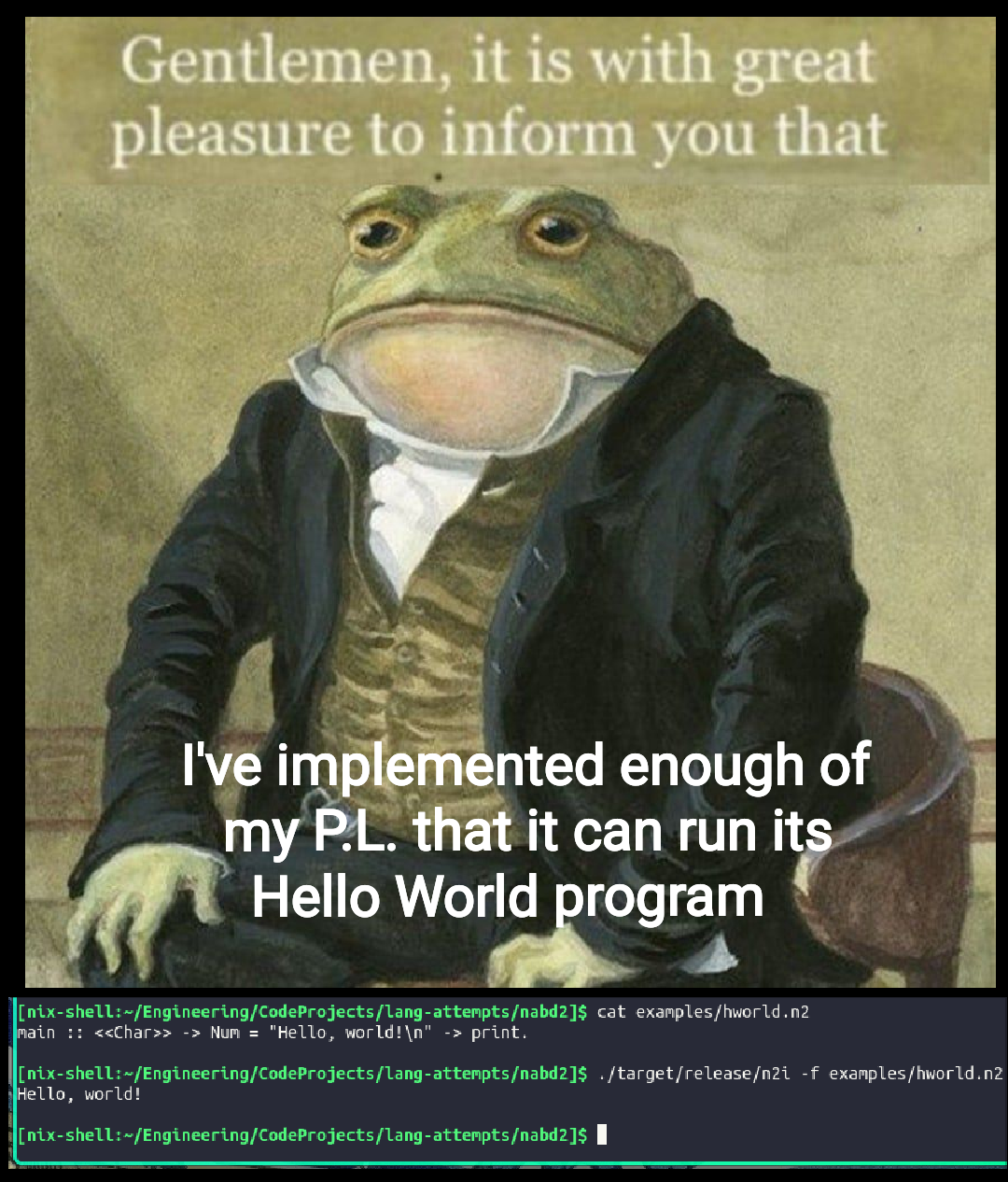Nexctloud home server ftw
KindaABigDyl
As others said, it means nullable, but to put it in more intuitive, less-jargony way - it's a question mark bc you don't know if the value is actually there or not. It could be a Singleton, but it isn't until you check if there is a value. Whereas if you have, idk, int a no question mark, then you're saying you actually have data.
Essentially with C# 8, they "removed" null and reused the idea of null references in creating what is essentially an Option like in other languages. You either have some data of some type, or none (a null reference, in this case). By default, everything has to be there. Then when you need null, e.g. you may not have something initialized or an operation could fail, you explicitly grab for it. Thus it reduces null pointer bugs. If you don't need nullability, you can ensure that you don't accidentally write in an issue. It safety checks statements and parameters.
Yeah I mean it's just a themed Kubuntu, right?
- Ubuntu is pretty stable, but the latest is pretty up-to-date atm. It's also well supported and well understood by the wider linux community
- KDE is a solid choice as it will be familiar to Windows users (afterall, Windows 11's GUI was based on Plasma)
- The novelty of using a Hannah Montana themed linux distro is fun
It's a fine beginner distro
Wdym? They're so good they even got backported to C in C23
You know how often C gets big features like that? I mean to get auto they had to basically deprecate a keyword (well, sort of)
Yeah it was good for a while. But now a few important websites for me just don't work anymore, like a page for paying my loan. It only worked in chromium browsers. I know that chromium will work everywhere because they're the first to implement the newest standards and are the most supported by developers due to it having a huge market share. I can't rely on knowing firefox will work anymore. I've lost faith in it as a product.
Brave works. Firefox doesn't. Cope
Yes they are. They are agreed upon standards set for future development from a host of different companies. Chrome is just always the first to implement them. It's not that firefox will never have them, they just develop slow.
And I won't switch from brave bc it's the one browser that just works and has good adblock
Good for you. It works for most websites. But when I can't pay my loan bc firefox is crapping itself, it means I can't use firefox.
especially with this recent adblock nonsense that google is pulling.
But brave has adblock, so it's all good
At the end of the day Lisps are atoms and lists and that's it
One of the few chromies that has adblock still as well as decent privacy-by-default settings. I just disable the AI stuff. It doesn't have crypto stuff anymore (at least not in your face; I'm sure you can still re-enable it). It's the best chromium browser by far.


Another reason why raw pointers are superior to object nonsense
Isn't "explicit is better than implicit" part of the Zen of Python?